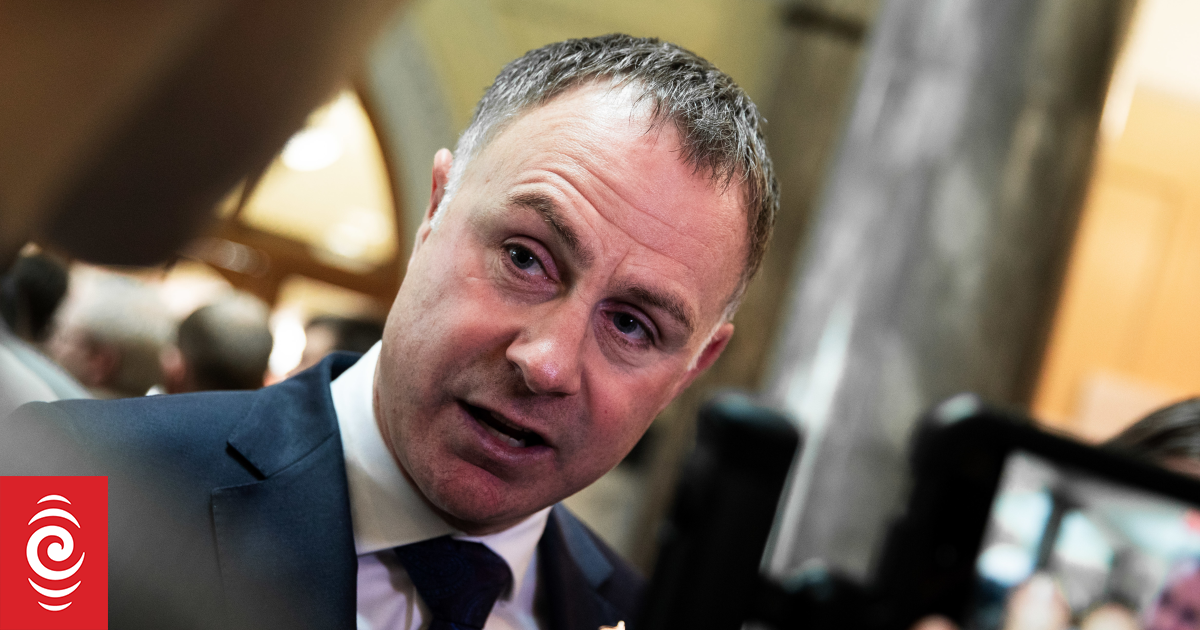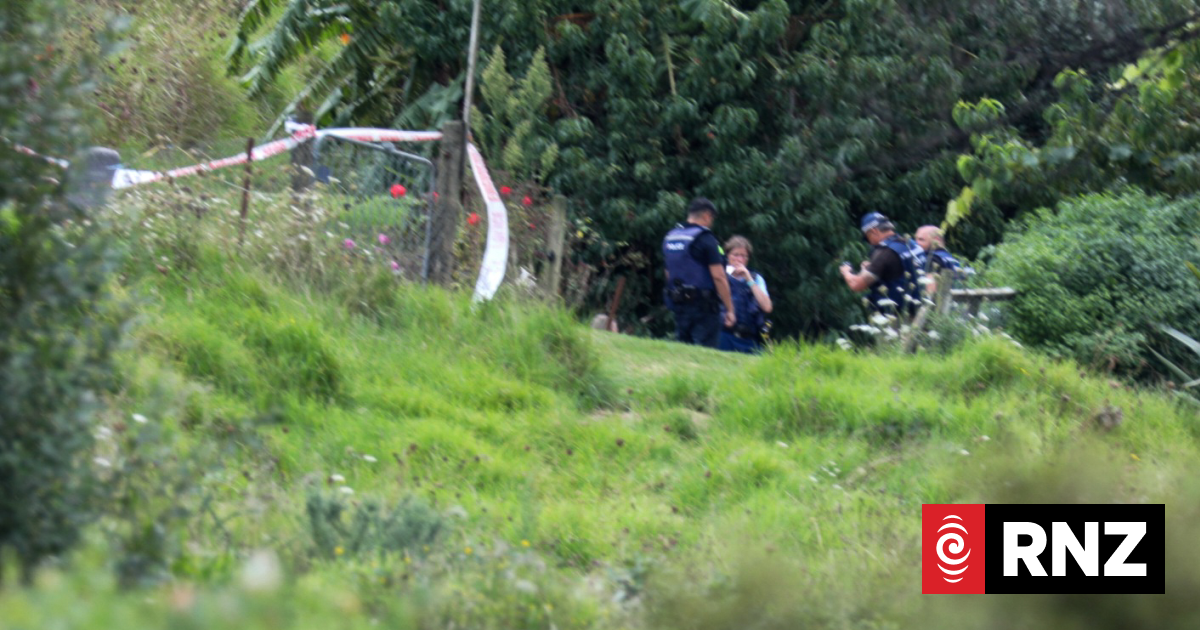Kaipara Mayor Craig Jepson outside council chambers during a hīkoi over his karakia ban earlier this year. Photo / Tania Whyte
A Kaipara District councillor says she was shocked to discover mayor Craig Jepson had issued a directive to remove te reo Māori from the district’s annual plan – especially after councillors agreed on the sole bilingual copy.
Jepson confirmed a “desire” to produce “easier to read” documents was behind his order for an English-only copy of the annual plan. However, he said a separate bilingual version containing “more” te reo Māori will be produced to encourage greater use of the language.
“It is important that council’s documents, which are sometimes large documents, are read by as many in our community as possible.”
The Advocate understands his initial directive was to then later create a te reo Māori version using AI to translate that would be available only online.
Advertisement
However, following some pushback from iwi he has now directed a bilingual annual plan be crafted after the English version.
Te Moananui o Kaipara Māori ward councillor Pera Paniora (Ngāphui, Ngāti Porou, Te Atī Awa) said Kaipara District councillors were “completely unaware” of the change.
/cloudfront-ap-southeast-2.images.arcpublishing.com/nzme/FRBFH6L4AFAMDIB5EQDH252PTY.jpg)
But Jepson rejected the claim. He said the changes were outlined and adopted at a June 30 council meeting.
However, Paniora said before that meeting the council had already agreed on an annual plan draft that had “te reo peppered throughout” and several whakataukī [Māori proverbs].
Advertisement
“The next time it [the annual plan] came to the full council we just assumed that there were no major changes because otherwise it would’ve been pointed out to us by staff.”
Paniora called the move an “anti-co-governance, whitewashing approach”.
But Jepson said the decision did not lack respect.
“There has been consultation both via my chief executive [Jason Marris] and myself … I have spoken with representatives of Te Roroa and Te Uri o Hau.”
Iwi will also be asked to review the final copy of the bilingual version, Jepson said.
Paniora was told the use of AI to translate English into te reo was to save costs as translating a document of that size could amass a bill up to $14,000, which Jepson confirmed to the Advocate was correct.
Paniora said the use of AI was “a joke”.
“It’s highly disrespectful, Māori have never asked for te reo to be part of AI … it’s illegitimate in our view.”
Paniora said AI could never replicate the concepts expressed in te reo Māori.
“AI would just spit out a literal translation of the word and it is a bastardisation of te reo Māori.”
Advertisement
Again Jepson disagreed. He said AI had been trialled and checked for accuracy internally and externally – which it passed.
“The feedback was that the translation was accurate and required some wording changes only.”
Paniora said the mayor was overstepping the boundaries laid out in the Local Government Act 2002 and the council failing its obligations under Te Tiriti o Waitangi.
“The act gives the mayor powers to lead plans and policies and not to implement changes at that operational level.”
Jepson responded by nodding to the legislative authorities mayors have to lead the development of all plans and policies to council.
Paniora said the shoving aside of the bilingual annual plan and the controversial karakia ban meant Māori were “just fighting to retain what we’ve already fought to have.”
Advertisement
“The worrying and scary thing about it is just how hard it is to fight for what little we get and just how easy it is to take it all away.”
Kaipara resident Caren Davis (Ngāpuhi, Te Rarawa), who was first alerted to the directive after speaking at a council meeting last month on the importance of karakia, was “absolutely gutted” by the news.
“It’s just colonisation all over again.”
Davis explained how te reo taking a backseat was “painful” as many Māori had lost touch with their language for that reason, and reclaiming it was a “massive journey”.
Ten years ago she made the decision to pause work for a year and pay $6000 to complete a full-immersion te reo course.
“That is what it costs us to get our language back when it was taken from us in the first place,” Davis said.
Advertisement
“This is exhausting, where does it end?”



